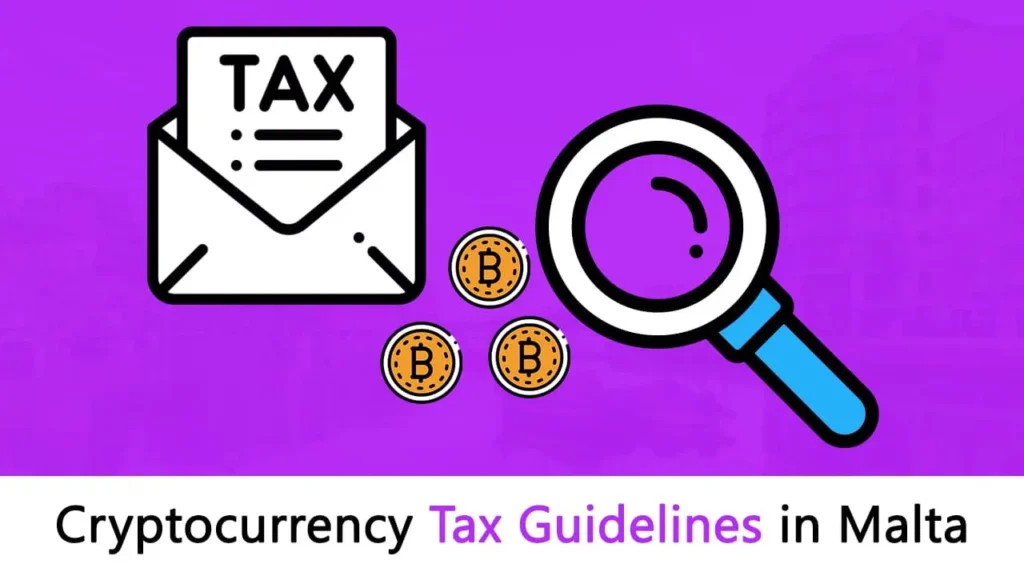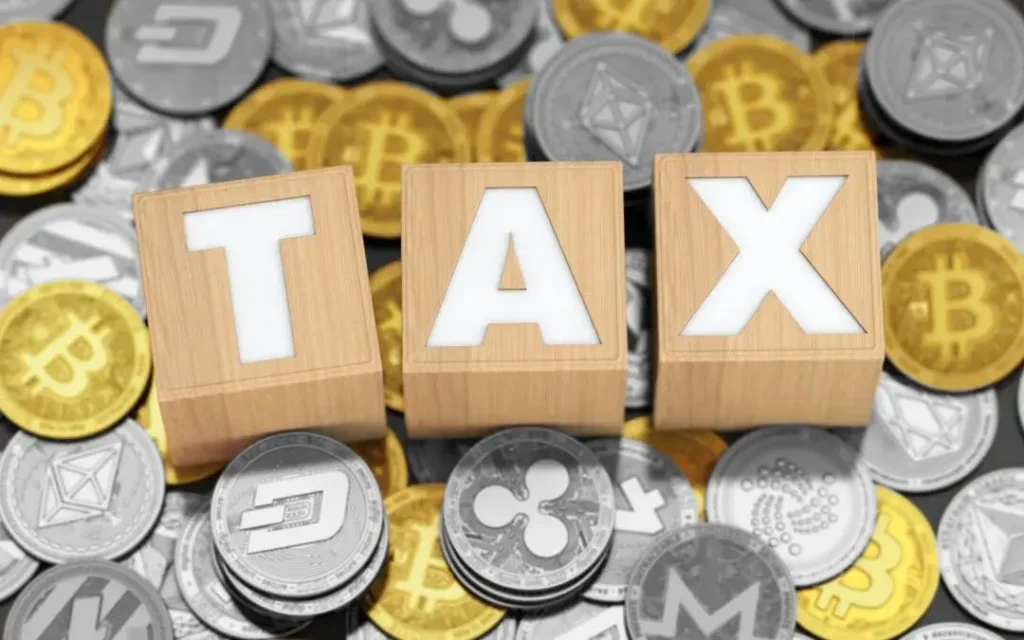Crypto Tax Malta 2025: How Does Crypto Tax Work In Malta?
When considering Malta’s favorable environment for cryptocurrency, it’s crucial to understand the intricacies of crypto tax legislation.
Malta’s legislation categorizes gains from Virtual Financial Assets (VFAs) differently based on the duration of asset holding.
For instance, gains from short-term holdings might face a tax rate of up to 28%, with potential exemptions if held for more than 365 days.
Navigating Malta’s crypto tax landscape can be complex due to varying rates and conditions. Depending on your residential status, capital gains tax rates on cryptocurrencies can range between 15% to 35%.
To ensure compliance, consulting services such as Crypto Tax Malta offer specialized guidance tailored to the unique regulatory environment of Malta’s crypto space.
The Maltese government’s progressive regulatory framework has established the island as a significant hub for crypto businesses and investors.
This environment supports innovation and provides a structured approach to crypto taxation, making optimizing your tax outcomes easier while remaining compliant with local laws.
Understanding Malta’s Tax Landscape

In Malta, crypto taxation is influenced by various legislative acts and regulatory bodies. This ensures comprehensive coverage and clear guidelines for different aspects of cryptocurrency-related activities.
Income Tax Act and Malta Digital Innovation Authority Act
The Income Tax Act impacts how gains and earnings from cryptocurrency are taxed. This involves scrutinizing income from trading, mining, or any cryptocurrency business.
The Malta Digital Innovation Authority (MDIA) Act provides a framework for technology platforms and service providers to operate legally.
It ensures that digital businesses, including those dealing in cryptocurrency, adhere to regulatory standards. This alignment benefits you by creating clear compliance pathways.
Virtual Financial Assets Act and Its Implications
The Virtual Financial Assets (VFA) Act regulates Initial Coin Offerings (ICOs), crypto exchanges, wallet providers, and other entities within the crypto space. Its primary aim is to ensure that market participants operate transparently.
Important facets of the VFA Act include the mandatory registration of VFA services and obtaining necessary licenses.
If you offer or deal with virtual financial assets, this act affects your operations. Compliance with these regulations is crucial to stay within the legal bounds of Malta’s tax regime.
Maltese VAT Act and Cryptocurrency
Malta’s VAT Act stipulates that cryptocurrency transactions are generally VAT-exempt. This aligns with the EU-wide exemption on cryptocurrencies under the VAT Directive.
Specific instances involving cryptocurrencies and VAT include business transactions where cryptocurrency is accepted as a medium of exchange.
While the VAT exemption is beneficial, other tax obligations, such as income or capital gains tax, still apply depending on the nature of your transactions.
The connection between VAT and cryptocurrency ensures that while the sale and trade might be VAT-exempt, other tax considerations still hold relevance, guaranteeing comprehensive tax coverage in Malta.
Types of Taxes Applicable to Cryptocurrencies in Malta

In Malta, cryptocurrencies are subject to multiple types of taxation, including income tax on activities like mining and trading, capital gains tax on the sale of crypto assets, and Value Added Tax (VAT) exemptions for certain crypto transactions.
Income Tax on Mining and Trading Activities
Mining and trading activities are classified as income-generating endeavors in Malta. If you are mining or actively trading cryptocurrencies, these activities are taxed as personal or business income.
The tax rate can depend on your residential status and the volume of your activities. Individual taxpayers’ income tax rates range from 15% to 35%.
Standard corporate tax rates apply for companies, often necessitating meticulous record-keeping and reporting to ensure compliance.
It’s advisable to consult with tax professionals familiar with Maltese laws to optimize your tax obligations.
Capital Gains Tax on Crypto Assets
Capital gains tax in Malta applies to the sale of crypto assets, including transactions in which cryptocurrencies are exchanged for fiat or other digital currencies.
The capital gains tax rates can range from 15% to 35%, influenced by your residential status and the asset’s holding period.
Short-term gains (assets held for less than a year) typically incur higher tax rates. Federal regulations encourage holding digital assets for extended periods to benefit from lower tax rates.
Seek advice from crypto-native tax consultants to navigate these complexities effectively and manage your tax liabilities.
VAT Exemptions and Cryptocurrencies
In Malta, certain cryptocurrency transactions are VAT-exempt. These include transactions involving the exchange of cryptocurrencies and the provision of digital wallets or other related services.
It’s essential to distinguish between VAT-exempt and VAT-applicable transactions, as misclassification can lead to non-compliance issues.
Engaging a tax expert proficient in Maltese VAT regulations can help ensure you correctly apply these exemptions to your crypto activities.
Such expertise can save you from penalties and foster smoother operation in the crypto market.
How Much Crypto Tax In Malta?

In Malta, crypto investors and traders are subject to specific tax obligations, which include rigorous reporting and diligent record-keeping.
Additionally, those involved in Initial Coin Offerings (ICOs) must adhere to notification requirements to ensure compliance with local regulations.
Reporting Requirements and Record-Keeping
Crypto investors and traders in Malta must adhere to stringent reporting requirements.
Your annual tax return requires you to declare all cryptocurrency transactions, including trades, gains, and losses. This includes both short-term and long-term holdings.
Accurate record-keeping is crucial. Ensure you track the date of each transaction, the value in euros at the time, and the nature of the transaction (buy, sell, trade, etc.).
Detailed records will help you calculate the correct amount of tax owed and provide evidence in case of an audit. Maintaining these records for at least five years is advised to comply with Maltese tax regulations.
Use crypto tax software or hire a professional to assist with these tasks. This will ensure your reporting is accurate and minimizes errors.
Notification Requirements for ICOs
If you are involved in launching an ICO in Malta, you must notify the Malta Financial Services Authority (MFSA). This notification must be made before the launch of the ICO, providing details of the project, the team, and the financial plan.
ICOs must also comply with anti-money laundering (AML) regulations. You are required to conduct thorough customer due diligence (CDD) to verify the identity of participants.
Failure to comply with these notification requirements can result in severe penalties. Therefore, seeking legal advice to navigate these obligations effectively and ensure full compliance with local laws is crucial.
Crypto Taxation for Businesses and Startups
Businesses and startups engaged in cryptocurrency activities in Malta benefit from a structured tax environment. Key areas include corporate tax regulations and Startup Visa Malta program incentives.
Corporate Tax and Cryptocurrency Businesses
Malta offers a favorable corporate tax regime for cryptocurrency businesses. Companies are subject to a standard corporate tax rate of 35%.
However, shareholders can receive significant refunds, resulting in an effective tax rate that can be much lower.
For instance, a shareholder may receive a refund of up to 6/7ths of the tax paid, reducing the overall tax burden. Cryptocurrencies are treated as other financial assets, so understanding capital gains rules is crucial.
Professional tax advice is recommended to ensure compliance and to optimize tax planning strategies.
Startup Visa Malta and Tax Incentives
Startup Visa Malta encourages foreign innovators to establish their businesses in Malta.
This program provides various tax incentives, including reduced tax rates and exemptions for certain qualifying startups. Innovative crypto businesses can benefit significantly from these programs as they foster a supportive environment.
In addition to the visa, startups may be eligible for grants and other financial incentives to promote innovation.
These incentives minimize the initial tax burden and encourage long-term cryptocurrency growth. Consult with experts to maximize the benefits available through these programs.
International Considerations and EU Regulations
When dealing with cryptocurrency in Malta, it is crucial to navigate EU compliance standards and anti-money laundering measures.
These international considerations shape Malta’s regulatory framework and influence how you manage your crypto assets.
EU Compliance and Malta’s Regulatory Environment
Malta is committed to adhering to EU regulations on cryptocurrency. The Directive on Administrative Cooperation (DAC8), adopted on May 16, 2023, expands regulatory oversight to include electronic money and crypto assets.
This directive mandates reporting requirements for EU and non-EU entities involved in crypto asset management.
You should be aware of comprehensive reporting obligations for custodians, administrators, and platform operators.
Malta has positioned itself as a leader in the crypto sphere, creating a regulatory environment that balances innovation with strict compliance. Staying updated with these regulations is essential for maintaining legal operations.
Anti-Money Laundering Directives and Cryptocurrency
The EU has stringent Anti-Money Laundering (AML) Directives that directly impact how you handle cryptocurrencies in Malta.
These directives aim to prevent illicit activities like money laundering and terrorist financing. Compliance requires comprehensive due diligence and reporting any suspicious transactions.
In Malta, AML compliance extends to various entities, including crypto exchanges and wallet providers. You must implement robust verification processes and keep thorough records of all transactions.
Adhering to these directives ensures legal compliance and fosters trust and transparency in the crypto market.
Calculating Crypto Tax: Methods and Strategies
Understanding how to calculate crypto tax involves determining the fair market value of your assets and adopting strategies for maximizing returns and tax efficiency.
Proper methods and strategic planning help ensure compliance and optimize your tax liabilities.
Fair Market Value and Taxable Income
To calculate your crypto tax in Malta, you need to establish the fair market value of your cryptocurrencies at the time of each transaction.
This value is crucial as it determines the taxable income.
To find the fair market value, use reliable sources like crypto exchanges or financial platforms that offer historical price data. Convert this value into euros using the exchange rate at the time of the transaction.
When calculating the taxable income, track every transaction, including purchases, sales, trades, and even crypto received as income. The difference between the acquisition cost and the sale price determines the capital gains or losses.
Example:
| Transaction Type | Acquisition Cost (EUR) | Sale Price (EUR) | Capital Gain (Loss) |
|---|---|---|---|
| Purchase | 1000 | 1500 | +500 |
| Sale | 1500 | 1300 | -200 |
Maximizing Returns: Strategic Planning and Tax Efficiency
Strategic planning helps in maximizing your returns and improving tax efficiency. One effective strategy is to hold your assets for over a year to benefit from lower tax rates on long-term capital gains.
Consider loss harvesting, where you sell crypto assets at a loss to offset gains in other investments, reducing your taxable income. Engage in tax-advantaged accounts, if possible, to further defer or minimize your tax liabilities.
Maintain detailed records of all your crypto transactions, including dates, amounts, and values. Consult with crypto-native tax consultants who understand the specific nuances of Malta’s tax laws.
By employing these strategies, you can navigate the complexities of Malta’s crypto tax regulations, ensuring compliance and financial optimization.
Residency and Taxation in Malta
Understanding how your residency status influences your tax liabilities in Malta is crucial, especially for long-term crypto investors.
Malta offers several benefits to those willing to establish residency for tax purposes, providing a favorable environment for individual investors and businesses.
The Impact of Residency Status on Tax Liabilities
Your residency status in Malta significantly affects how you are taxed, particularly regarding crypto gains. If you are a resident of Malta, you are typically taxed on a worldwide income basis. This means your global income, including crypto gains, is subject to Maltese taxes.
Non-residents, on the other hand, are taxed only on income and capital gains generated within Malta. This distinction is essential for crypto investors operating or holding assets internationally.
Note that Malta offers a remittance basis for foreign income, whereby only income remitted to Malta is taxed.
Benefits for Long-Term Crypto Investors
Malta provides several benefits for long-term crypto investors.
One key advantage is the island’s crypto-friendly tax regulations.
For instance, long-term gains from crypto investments may qualify for more favorable tax treatment, depending on the holding period and the nature of the transactions.
The Maltese government actively encourages blockchain and cryptocurrency innovation, resulting in a supportive legal framework.
Additionally, specific deductions and exemptions are available for crypto-related activities, potentially reducing your overall tax burden.
This makes Malta an attractive location for those looking to invest in or operate crypto businesses over an extended period.
Consumer Protection and Investor Safety
Malta has a robust framework designed to ensure consumer protection and investor safety in the cryptocurrency market. Key entities and regulations foster a secure environment, emphasizing transparency and market integrity.
Malta Digital Innovation Authority and Consumer Protection
The Malta Digital Innovation Authority (MDIA) is central to maintaining consumer protection within the crypto industry. This entity develops and implements regulations that ensure digital innovation aligns with safety standards.
Critical responsibilities of MDIA include:
- Certifying blockchain systems
- Monitoring compliance with legal standards
- Safeguarding consumer interests
MDIA’s role in certifying blockchain systems is to help prevent fraud and promote transparency. Ensuring all systems meet stringent legal standards protects consumers from potential risks associated with crypto transactions.
Regulatory Changes and Investor Protection
Malta’s regulatory landscape is designed to offer robust investor protection. Legislative packages introduced in 2018 have set the stage for a well-regulated crypto environment.
Recent regulatory changes include:
- 28% tax on short-term gains
- Exemptions on gains held for over 365 days
These regulations help create a balance by protecting investors and fostering market integrity.
The 2018 legislative package focuses on consumer and industry protection, ensuring that local and international stakeholders benefit from a secure investment environment.
Tax Services and Advisory for Crypto Entities
To maintain compliance and efficiency, partnering with professional tax services is essential for any crypto entity in Malta.
Navigating Tax Regulations with Professional Advisory
Professional advisory services assist you in interpreting Malta’s complex tax regulations for cryptocurrencies. They ensure you grasp the implications of short-term gains tax and guide you on potential exemptions.
Engaging with experts can help you prepare accurate tax filings, avoiding errors that could lead to penalties. Advisors provide tailored strategies to optimize your tax position, aligning with Malta’s crypto-friendly policies.
Look for companies like Crypto Tax Malta specializing in crypto taxation and offering comprehensive services such as audit support and VAT compliance.
Licensing and Compliance for Crypto Exchanges
Obtaining the required licenses is crucial for operating crypto exchanges in Malta. Regulatory bodies mandate that exchanges adhere to stringent standards for anti-money laundering (AML) and know-your-customer (KYC) protocols.
Advisory services guide you through the licensing process, ensuring you meet the eligibility criteria. They assist in preparing necessary documentation and facilitate communication with regulatory authorities.
Staying compliant involves ongoing monitoring and reporting. Experts help maintain thorough records and ensure adherence to Malta’s evolving regulatory landscape, reducing non-compliance risk.
Professional advisors also offer insights into the best practices for managing operational risks and safeguarding your exchange and its users.
Frequently Asked Questions
You will find answers to common questions regarding cryptocurrency taxation in Malta in 2024 here. These questions cover various aspects of tax rules, regulations, benefits, and comparisons with other countries.
What are the cryptocurrency taxation rules in Malta as of 2024?
Malta imposes capital gains tax on cryptocurrency, ranging from 15% to 35%, depending on the individual’s residential status. Short-term gains can attract a 28% tax, with potential exemptions for holdings over 365 days.
How does Malta regulate cryptocurrency exchanges and their taxation?
Cryptocurrency exchanges in Malta must comply with stringent anti-money laundering regulations and are required to report transactions. They also need to ensure VAT compliance and maintain proper records for tax purposes.
Are there any provisions for tax-free withdrawal of cryptocurrency profits in Malta?
Specific provisions may allow tax-free withdrawal of cryptocurrency profits after holding the assets for over a year. This could vary based on the type of assets and the individual’s tax status.
How legal is crypto trading in Malta, and what are the associated tax obligations?
Crypto trading is legal in Malta, and its regulatory framework is well-defined. Traders must report their earnings and are subject to applicable capital gains taxes and other relevant financial regulations.
Compared with other European countries, how favorable is Malta’s crypto tax policy?
Malta is considered one of the most crypto-friendly countries in Europe, offering relatively low tax rates and clear regulatory guidelines. Its progressive stance attracts many blockchain businesses and investors.
Does Malta offer specific tax benefits to crypto companies operating within its jurisdiction?
Yes, Malta provides specific tax incentives to crypto companies, such as reduced corporate tax rates and favorable conditions for compliance. These benefits aim to foster growth and innovation in the cryptocurrency sector.
